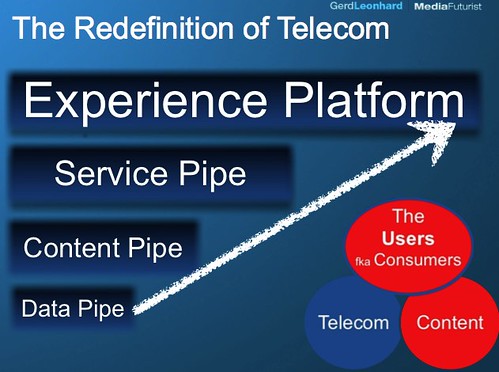And we don't need term limits? Essentially lawmakers retire for a day and come back to their jobs collecting both their pay and their pension...almost doubling their annual income .... What do you think, America? 
Nathaniel Brooks for The New York Times
State Assemblyman Harvey Weisenberg, 75, earns $101,500 in salary and collects an annual pension of about $72,000
Published: August 17, 2009
ALBANY — When Assemblyman Harvey Weisenberg retired last year, there were no sendoffs, no cakes and no serenades.
Assemblyman William L. Parment says, “Sure, people would say this is not a good system and this shouldn’t be allowed.”

Nathaniel Brooks for The New York Times
Assemblyman John J. McEneny, 65, “retired” last year but kept his Assembly seat. He makes $94,500 and a $73,000 pension.
In fact, no one even knew he had left the Capitol, because he never did. Mr. Weisenberg, 75, a Long Island Democrat, “retired” last year but continued to work as a lawmaker and remained on the payroll. As a result, he earns $101,500 in salary and collects a pension of about $72,000, according to the comptroller’s office.
Similarly, Assemblywoman Rhoda Jacobs, a 72-year-old Brooklyn Democrat, retired last year after 31 years, but continued to serve her district. She earns $104,500 and draws an annual pension of more than $71,000. And Assemblyman John J. McEneny, a 65-year-old Albany-area Democrat who retired last year but kept his seat in the Assembly chamber, now earns $94,500 and a pension of about $73,000.
All of them are beneficiaries of “double dipping,” a practice in which public servants simultaneously collect government salaries and pensions, sometimes for the same job.
Most people who have a traditional pension put in years or decades of work at a job, then retire, leave the job and begin collecting monthly pension payments. Some companies do allow double dipping, though the practice has most likely declined during the recession and federal rules impose more restrictions on corporate pension funds.
In Albany, veteran lawmakers can “retire” at 65 from their jobs and start collecting pensions, but without actually leaving their jobs, giving up their salaries or even telling their constituents. Four legislators took advantage of the rule last year.
Mr. Weisenberg was actually a chief sponsor of legislation last year aimed at cracking down on double dipping by local governments. “Double dipping?” said Mr. Weisenberg, asked about the appearance created by his notional retirement. “I don’t see this as that,” he added. “This is something I earned.”
Mr. McEneny explained how the system worked. “You have to have a day without being on the payroll,” he said. “You take the last day of your term, New Year’s Eve, and then you resign. On January 1, you come back as the newly elected assemblyman.”
Assemblyman William L. Parment, a Democrat from Chautauqua County in western New York, was the fourth Assembly retiree last year: he now earns a $101,500 salary while drawing a roughly $66,000 annual pension.
“I didn’t retire from the job. I took the retirement benefit that was due under pension law,” said Mr. Parment, 67. “Sure, people would say this is not a good system and this shouldn’t be allowed.”
In fact, the gravy train has already been curbed, if not entirely stopped. In 1995, the Legislature changed the law so that lawmakers returning to the same jobs could not collect their pensions if they earned more than $30,000. But, the rules were changed only for future generations — in this case, lawmakers elected after 1995.
Other loopholes remain, including one for lawmakers who leave one local or state elected post for another. Such is the case with Senator George H. Winner Jr., a 59-year-old Elmira Republican, who retired from the Assembly after his 2004 election to the Senate. He now gets an $80,000 annual pension on top of his $89,000 salary, and also has a private law practice.
Mr. Winner said it would cost the state more if he truly retired because he would still be earning a pension and the state would also have to make pension contributions for his successor. “I’m actually saving the taxpayers money,” he said.
Despite Mr. Winner’s argument, finding a critic of the practice is not hard. As Kenneth Adams, the president and chief executive of the Business Council of New York State, put it, “Don’t you have to stop working to collect a pension?”
The retirements were revealed in data provided to The New York Times by the state comptroller’s office and come amid a series of state pension scandals.
Attorney General Andrew M. Cuomo has been investigating allegations of widespread corruption in the state pension fund under former Comptroller Alan G. Hevesi.
That legislators are legally double dipping reinforces the degree to which such pension perks have become embedded in state and local government.
Hundreds of state workers have obtained special waivers allowing them to return to their jobs after retiring and to keep their full pensions. Without the waivers, they could earn only up to $30,000 in salary or be required to forfeit their pension benefits. Mr. Weisenberg’s legislation made it harder to get the waivers.
State and local elected officials, however, are not required to obtain such waivers, though they do have to be at least 65 to return to their jobs with full pensions. Eight state lawmakers are earning salaries and drawing state pensions, though only the four most recent Assembly retirees stayed in the same elected offices.
Legislators earning two sources of income said they accrued their pension credits in a variety of government jobs — Mr. Parment was elected to the Assembly in 1983 but started government work in 1967 as a facilities planner for the state university system.
The lawmakers also point out that legislators have not gotten a pay raise in more than a decade and say they are simply taking advantage of the system after decades of work.
Still, at least one lawmaker has opted to pass on the double dip.
Assemblyman Bob Reilly, 69, a Democrat from Clifton Park, near Albany, was elected to the Assembly in 2004, having retired after 26 years as a school administrator and eight years as a county legislator. Together, he and his wife, a former teacher, have annual pensions of roughly $80,000.
He said “ a crusty old guy” confronted him when he first ran for the Legislature, and started “shouting at me about how all these politicians just want to line their pockets.” So Mr. Reilly decided to donate his annual $79,500 salary to charity.
For good measure, he has sponsored legislation that would take away the pensions of public officials convicted of crimes related to their office.
“If you as a public servant don’t fulfill your pledge,” Mr. Reilly said, you “don’t deserve your pension.” The bill’s fate? “I can’t get it through committee.”
Posted via email from kleerstreem's posterous
Investment dollars flowing into music startups have dwindled. Some of the drought can be blamed on a poor economy, but the music sector has also seen more than its share of failures and false starts. It may not be easy to make money investing in music, but Bruce Warila says its far from impossible if you look in the right places.




















